Last Updated on December 9, 2023
Coffee grounds stay fresh for a week or two—several weeks if properly stored where oxygen, light and moisture cannot get at them. Ground coffee will not last as long as whole beans, which can still be quite good after two months if stored in an opaque, airtight container.
However, good storage doesn’t solve everything. In 1992, scientists in Austria had experts taste vacuum-sealed coffee that had been stored in the dark at ideal temperatures. After nine months, it wasn’t great. After 18 months, it was rancid.
Here are our tips for extending the shelf life of your coffee for as possible.
Whole beans stay fresh longer than ground coffee
Pre-ground coffee is the most convenient option for brewing at home. You save time in the morning by simply pulling out a bag of ready-to-brew grounds. You don’t have to invest in a coffee grinder and risk grinding the beans incorrectly, which could interfere with the flavour of your morning cup.
However, pre-ground coffee tends to take a hit on flavour and freshness, especially when compared to whole beans.
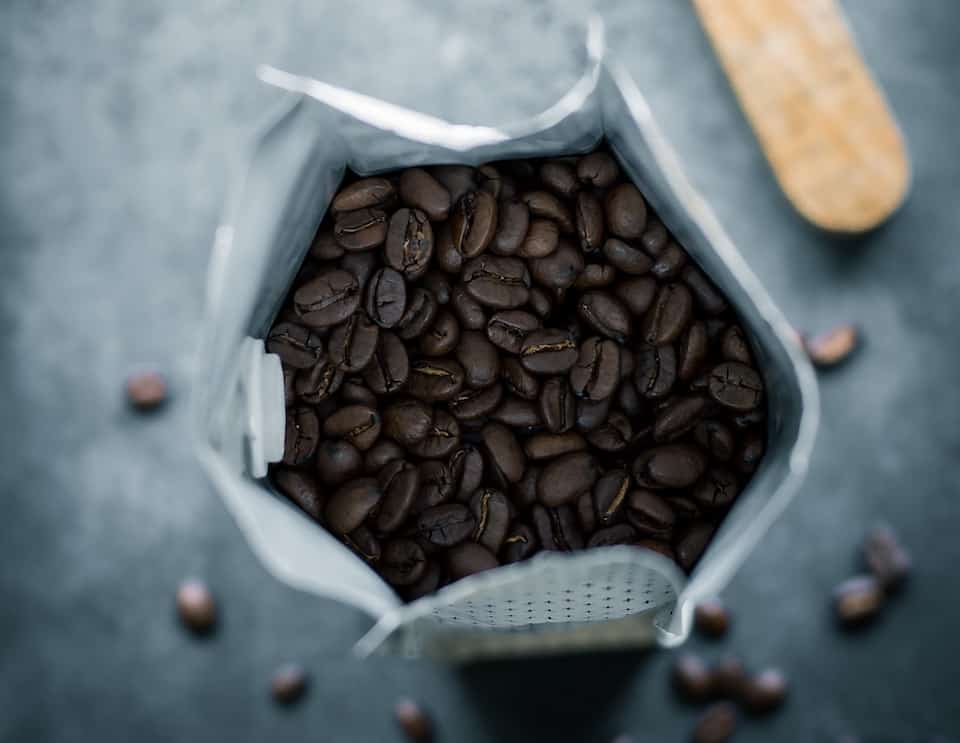
Whole coffee beans retain their aroma and flavour longer than ground ones, which allows you to buy and store larger quantities, and you can take a bit more time to get through an open bag of beans. Whole beans do require an extra step each morning, as well as some know-how for getting the beans to the right consistency, but the flavour of the resulting fresh coffee makes it worth it.
Checking the date on packaged coffee
Whether you are buying whole beans or ground coffee, it’s important to pay attention to the date on the packaging. You’ll want to make sure the coffee you’re buying lists a roast date, which indicates when the raw green coffee beans were transformed into their dark and aromatic form.
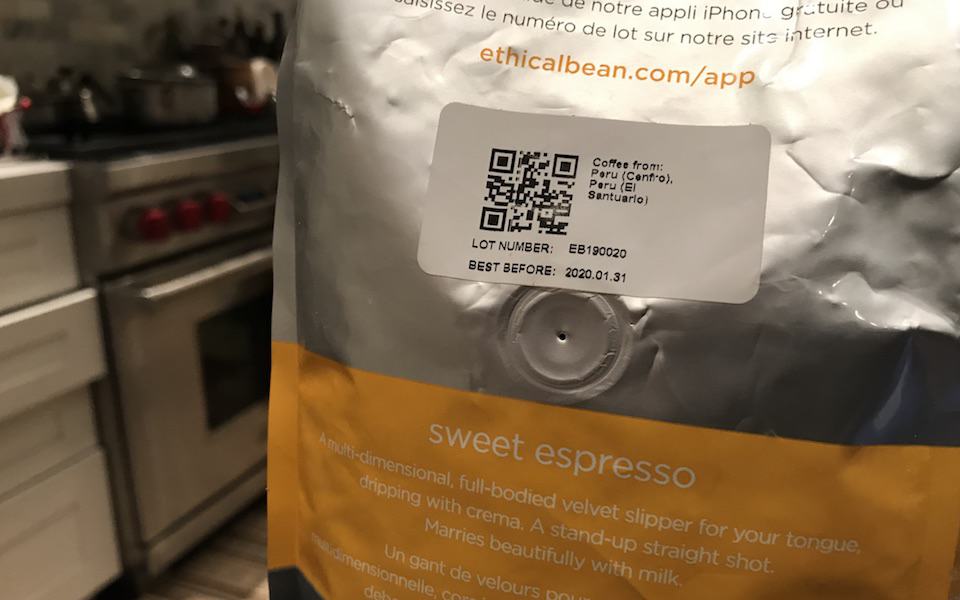
After coffee is roasted (if you haven’t roasted your own coffee before, you should try it), it begins a process called “degassing,” in which the beans release carbon dioxide. The beans aren’t ready to be ground and brewed for at least 24 hours after roasting, and many experts believe they aren’t at their best until about four days later. Until then, they’re still shedding that carbon dioxide. It is important to seal the coffee beans properly in order to keep them fresh for as long as possible.
A 1992 German study found that coffee’s most intense aroma notes come from just two compounds within the roasted bean: methanethiol and 2-methylpropanal. The same study determined that after eight days of storage, methanethiol had decreased by 70 per cent! Needless to say, you’re fighting an uphill battle against stale coffee.
What happens to coffee after it’s ground?
One of the reasons whole bean coffee stays fresh longer is related to the degassing process. Once the roasted beans have emitted most of their carbon dioxide, oxygen seeps in and interacts with oils in the beans. This starts a process called oxidization, which breaks down the flavour of the beans and affects how long the ground coffee will last.
When coffee is ground into smaller pieces, the ratio of surface area to volume for each smaller piece becomes much greater, and the surfaces also become more porous. This speeds up the process of degassing. The carbon dioxide is replaced by oxygen more quickly, which in turn can cause the coffee to go stale more quickly. Pre-ground coffee sold at the grocery store is likely far past its degassing period, as the beans were roasted well before the coffee was ground, packaged, and shipped to the store.
How coffee pods stay fresh
Newer coffee brewing technologies such as ready-to-serve single cups and pods have to contend with this issue. For maximum convenience, the capsules have to contain pre-ground coffee beans. So how do coffee companies like Nespresso and Keurig combat the degassing process to preserve flavour?
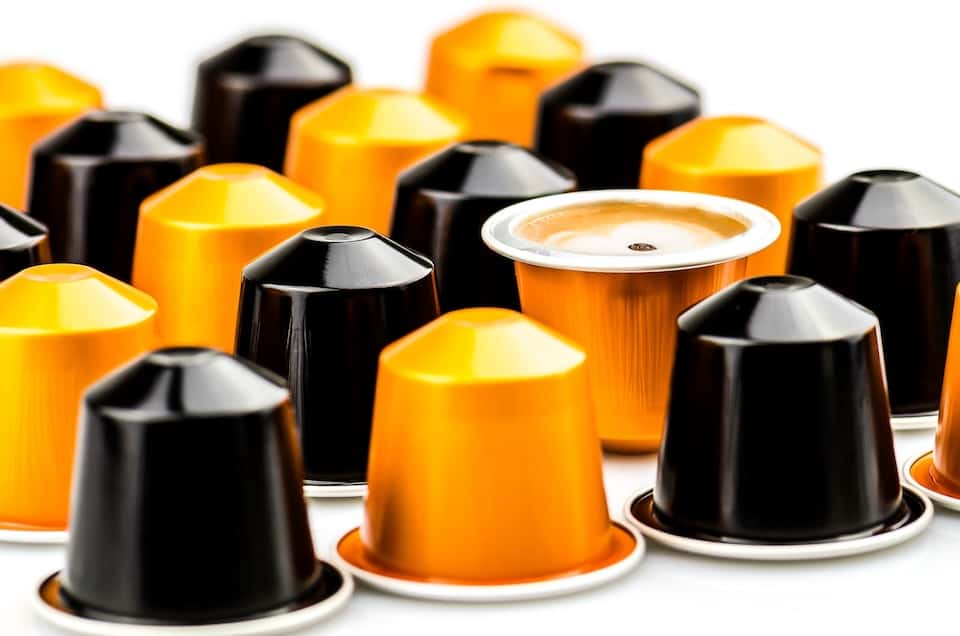
Each cup or pod is flushed with nitrogen to push out the oxygen, then vacuum-sealed to keep oxygen, light and moisture out. All of these could impact the flavour profile of the coffee and hasten its decline. The single-serve nature of the packaging actually helps the cups and pods to stay fresh, since the seal is only broken when the coffee is used and not repeatedly like a one pound bag would be.
How to store ground coffee beans
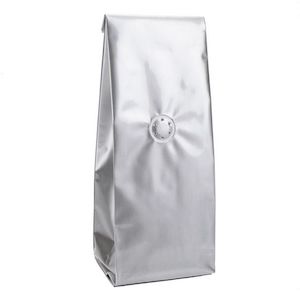
Take a cue from the coffee pod people when preserving your own coffee grounds. If you are buying larger quantities of ground coffee, store it properly to increase its shelf life. As noted above, ground coffee degasses quickly and exposure to oxygen, in either gas or liquid form, can rapidly break down the flavour of ground beans.
Keep your ground coffee in an opaque, airtight container to reduce exposure to light, oxygen and moisture. Better yet, a container with a one-way degassing valve will keep ground coffee fresher even longer. Some such containers are specifically made for storing coffee grounds. The valve allows carbon dioxide to escape as the beans degas, while simultaneously preventing oxygen from entering. This would be the optimal storage vessel for your coffee.
Temperature also matters. Research has shown that a temperature increase of 10 C speeds up the rate of deterioration by 15-23 per cent. However, this doesn’t mean you should store your coffee in the refrigerator or freezer.
Storing coffee in the refrigerator or freezer
Although many people choose to keep ground coffee in the refrigerator or freezer with the intent of preserving freshness, throwing your coffee bag in there is counterproductive. Both the refrigerator and the freezer are humid environments that produce a lot of moisture. Think about the condensation that builds up inside of plastic containers in your refrigerator, or the frost that collects on the outside of packages in the freezer.
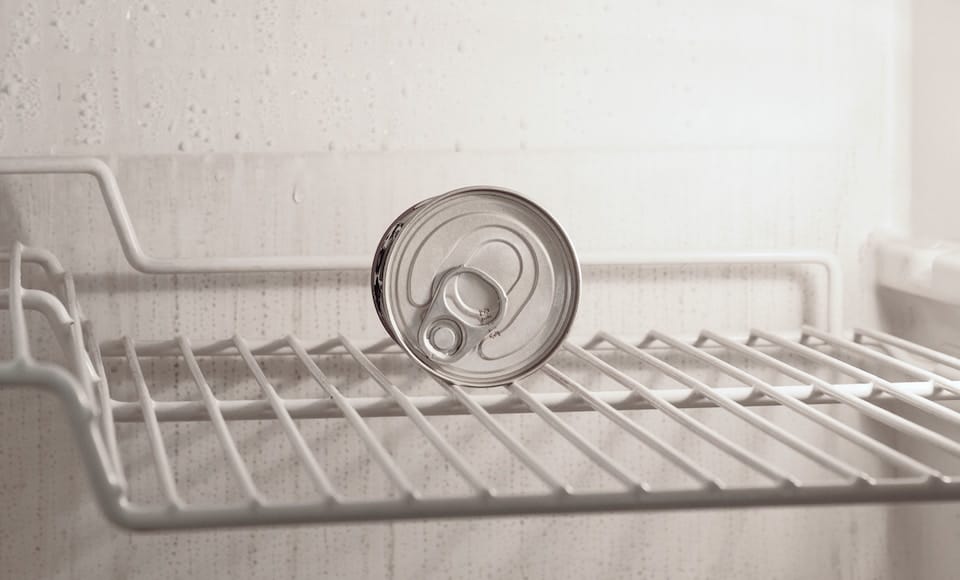
All this moisture is exactly what you want to avoid in order to keep your coffee grounds fresh and flavorful. While it is important to keep coffee grounds in a cool and dark place, a cabinet is a better option.
That said, there is a correct way to store coffee in the freezer. According to our coffee science expert Dr. Molly Spencer, when it’s done right it can be even better than storing at room temperature.
Keepin’ it fresh
For the best and freshest cup of coffee, consider every step of the process, from when and how the beans are roasted to where and how they’re stored in your kitchen. The amount of time since roasting, since grinding, and since packaging will all impact the flavor and freshness of the coffee. If you store recently roasted coffee grounds properly in a vacuum-sealed container in a low-moisture environment, you will be enjoying fresh brewed coffee for several weeks to come.

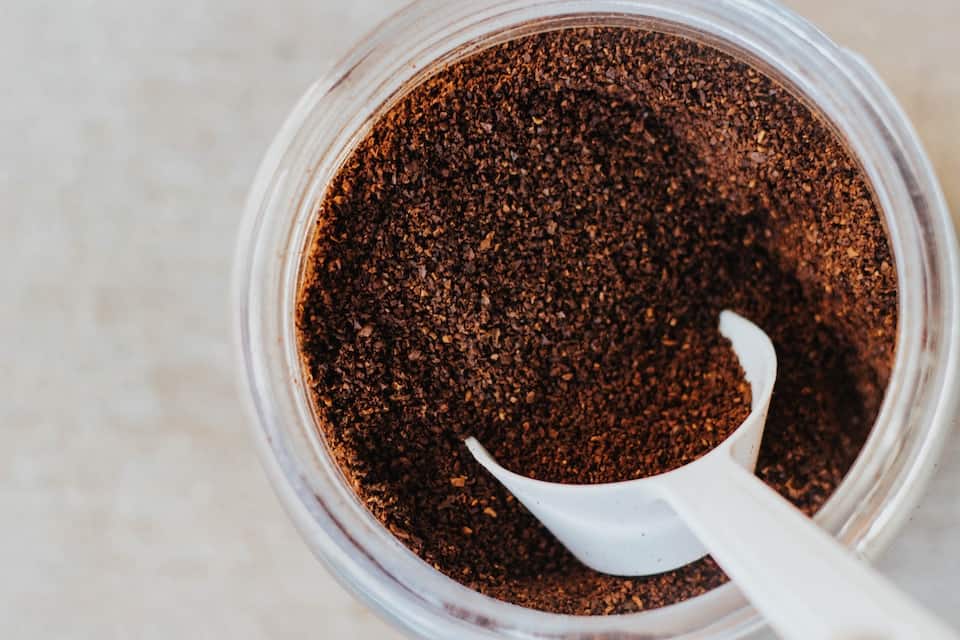

This is a very helpful articles. I have better understanding the structure of the cofee and its rosted level.